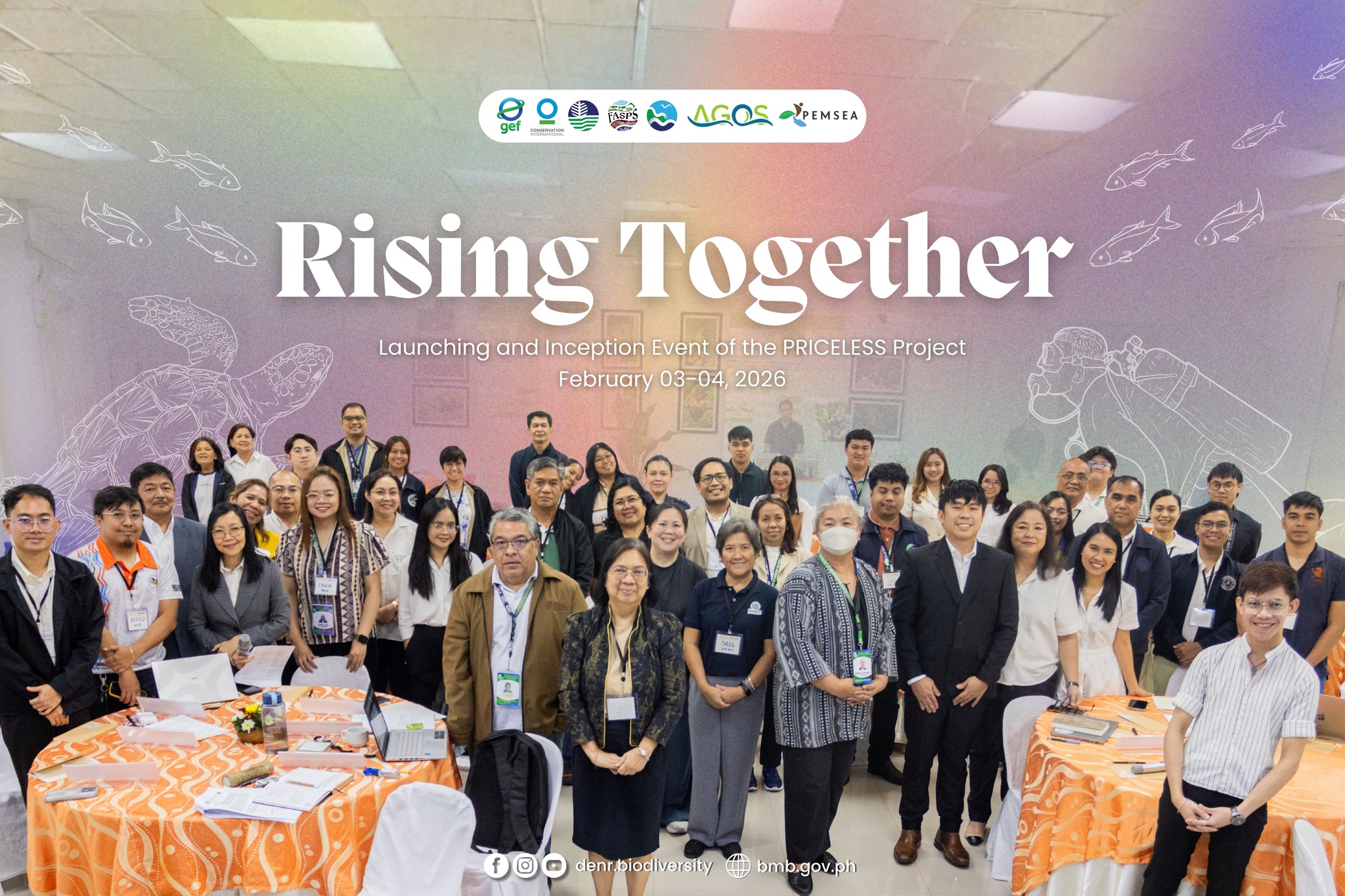Experts Gather at World Ocean Week to Advance Blue Economy Investment
Wednesday, 9 November 2016

As part of World Ocean Week 2016, held in Xiamen PR China Nov 4-10, PEMSEA hosted a workshop on Catalyzing Blue Economy Investment in East Asia. The event, co-hosted by the PEMSEA Network of Local Governments (PNLG), China-ASEAN Maritime Cooperation Center, Coastal and Ocean Management Institute (COMI), Xiamen University and Fujian Institute of Oceanography, welcomed participants from China and around the world to learn about blue economy investment in the region and discuss barriers and solutions to developing investible opportunities in the region.
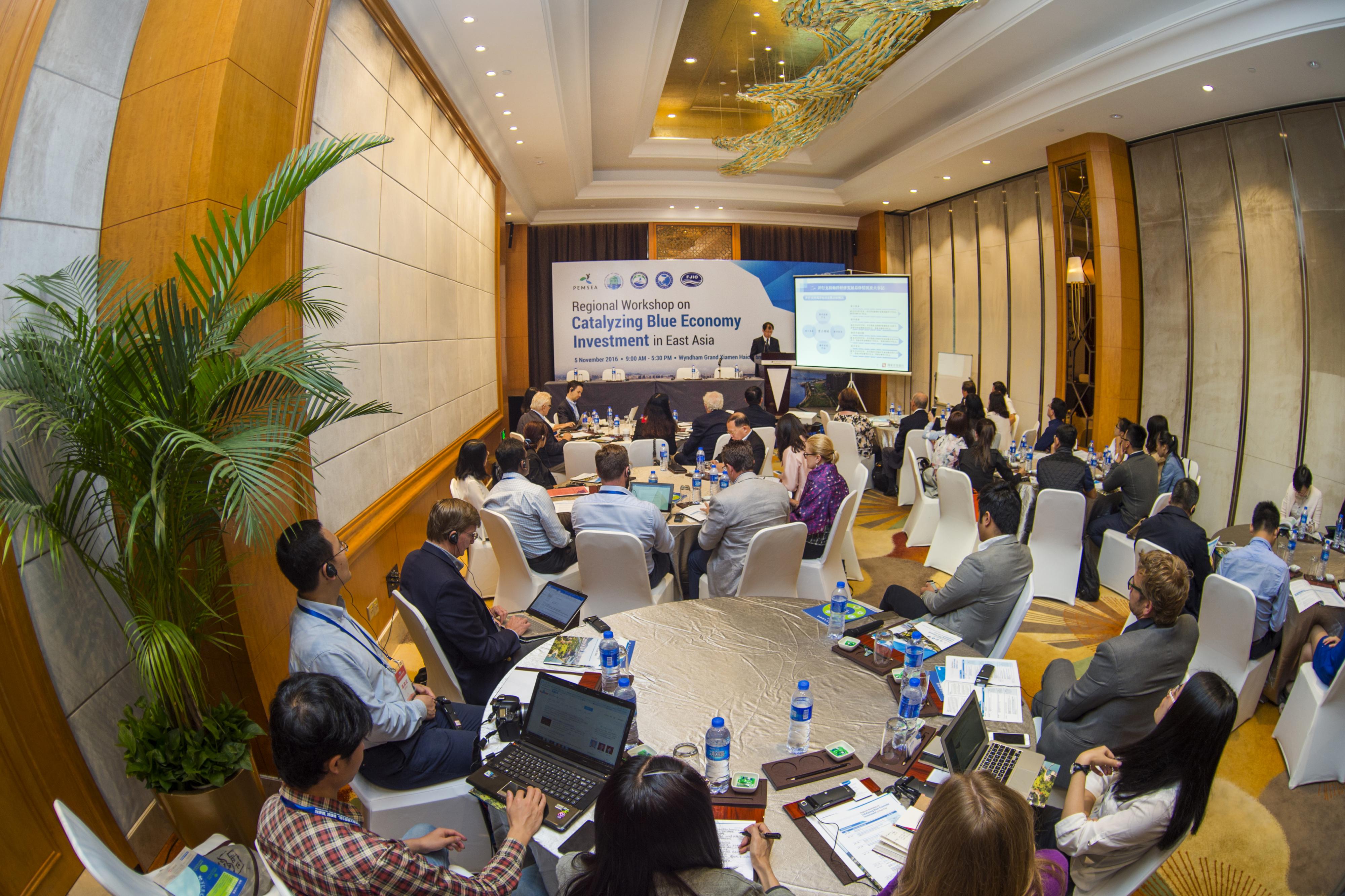
Representatives from investment and finance, development organizations, local and national government and business organizations provided their insights on expectations for investment and the actions and partnerships needed to address barriers to investment. The workshop opened with a keynote presentation from Mr. Yang Aiwu, President of the Xiamen Branch of China Development Bank, who discussed China’s “Belt and Road Initiative” and new financial models to serve the marine economy. Ms. Jun Shen from China’s State Oceanic Administration shared that the marine economy had captured the attention of important stakeholders in government and business, as it accounts for 10% of overall GDP in China.
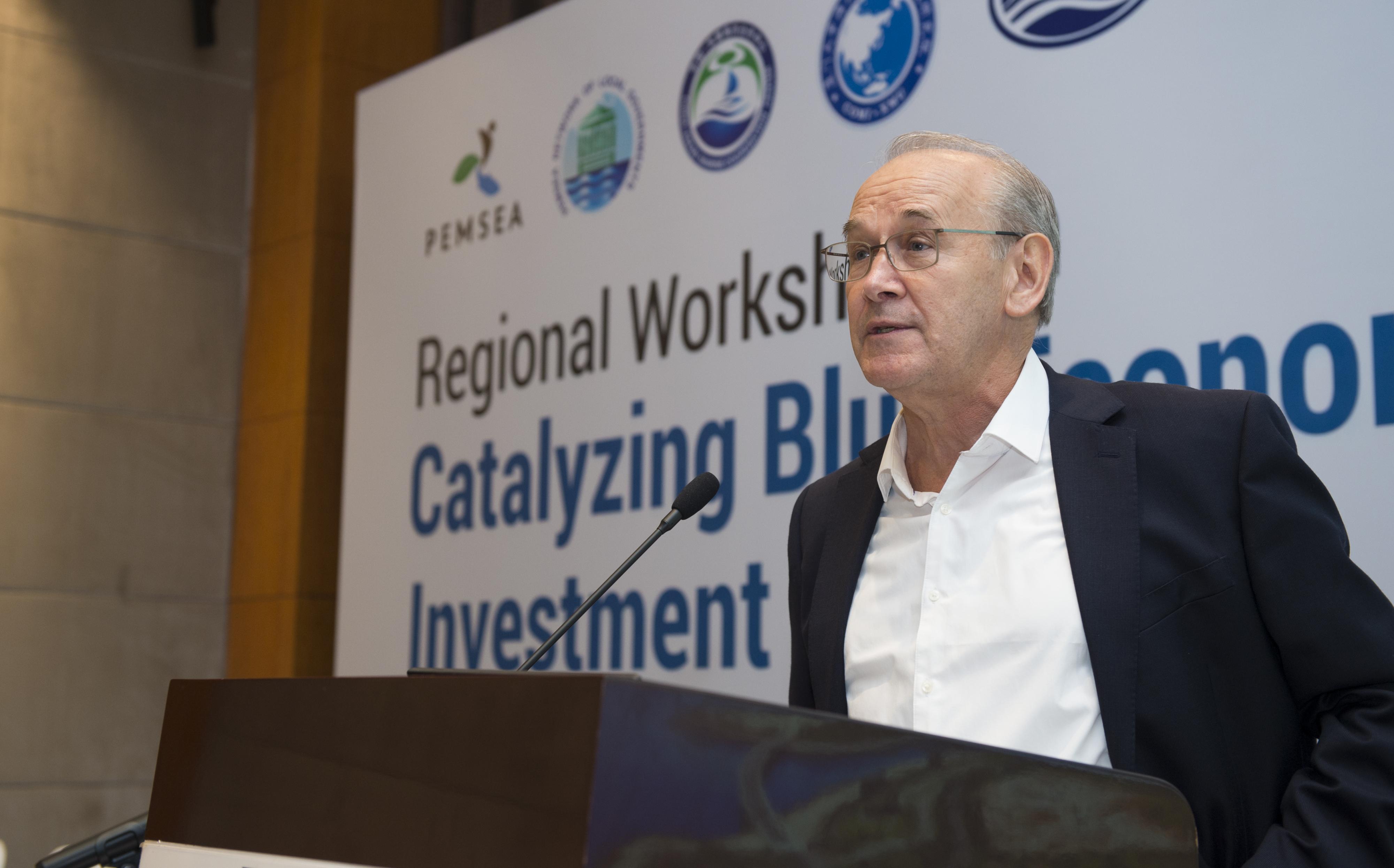
Stephen Adrian Ross, Executive Director for PEMSEA, provided further context for the day, describing how integrated coastal management (ICM) serves as an important prerequisite for blue economy investment, providing a mechanism for establishing proper coastal governance and needed regulatory frameworks. He then facilitated a panel presentation by project proponents who shared concrete examples of potential blue economy investment in the region, one on community-based seaweed farming and the other on integrated sewerage infrastructure development. Capital Markets and Investment Banking Expert, Anna Valcheva, provided reaction to the projects, including needs for establishing the right capital structure and recommendations for standardizing the approach to sourcing and assessing potential investment opportunities.
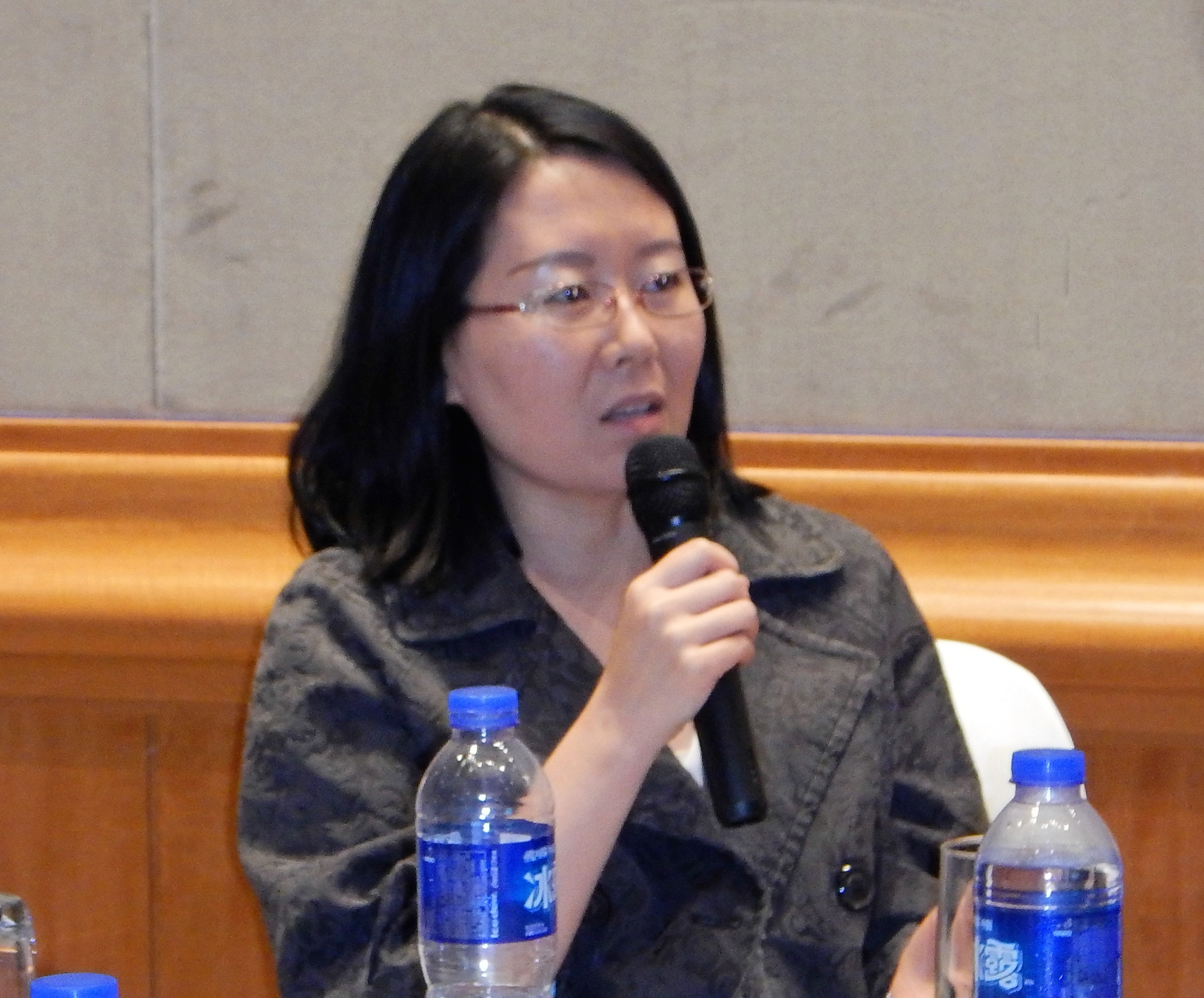
Qiuping Li, Director for Asia from R20 Regions of Climate Action, described the model that R20 has developed for generating a pipeline of bankable sustainable development projects. Participants agreed that while the R20 model was designed for low-carbon investments – renewable energy, energy efficiency and waste management – it could have useful applications to ocean-based investments. Natasha Garcha from Impact Investment Exchange Asia followed with perspective on impact investment in the ocean space, highlighting the untapped potential of oceans, which, valued at 24 trillion USD are equivalent to the world’s 7th largest economy. She highlighted several barriers to financing sustainable fisheries and ICM, including lack of an investment ready pipeline, weak understanding of the business case for sustainability and high perception of risk.
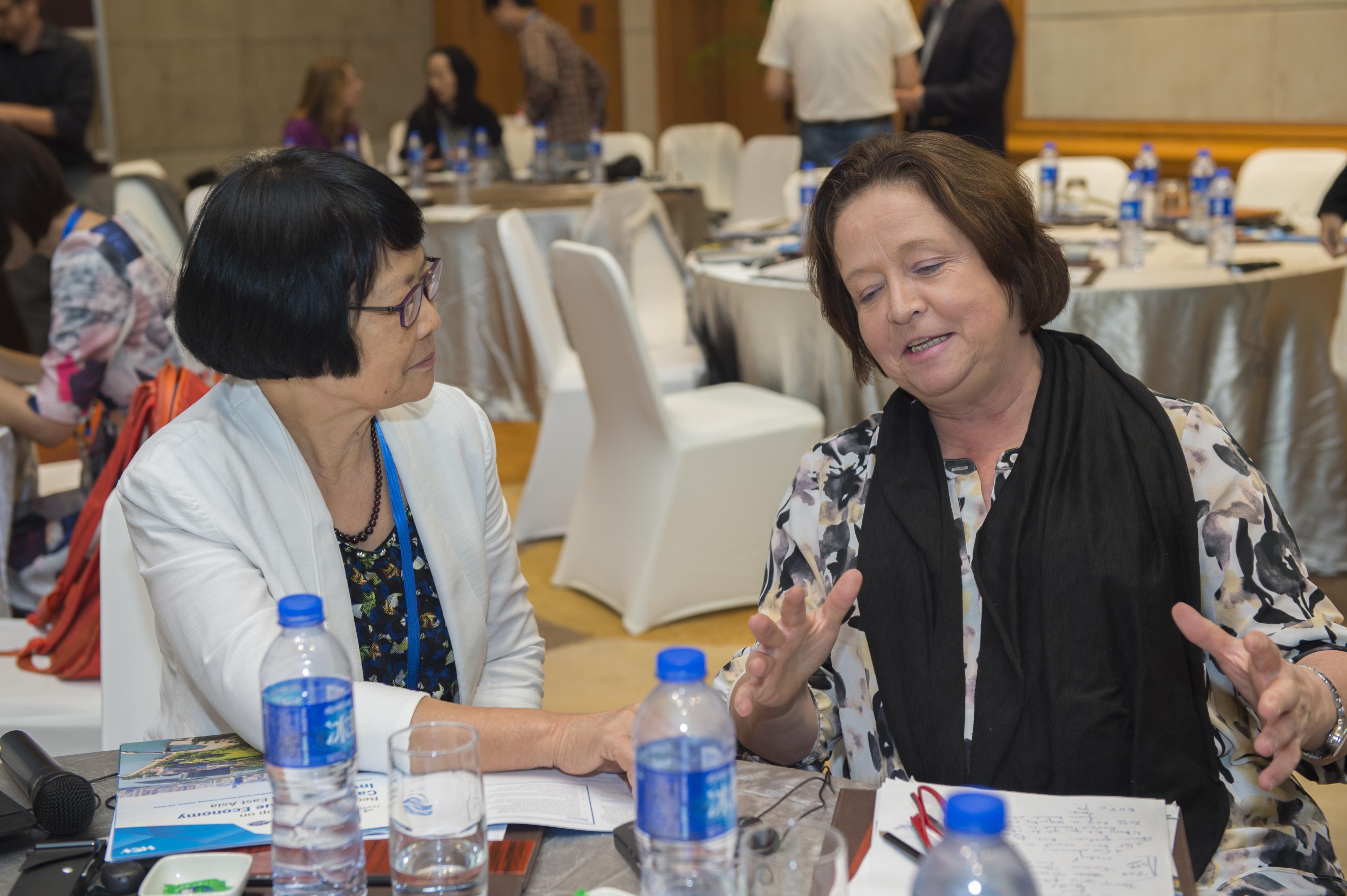
The afternoon panel sought to provide solutions to address such barriers, with speakers describing innovative and exciting new platforms for blue economy financing and investment. Anna Creed from the Climate Bonds Initiative shared new marine bond standards under development, which could help to promote debt-financing of more “green” projects in the ocean space. Paul Holthus, President and Founder of the World Ocean Council presented a new “Ocean Investment Platform” under development for accelerating investment in ocean sustainable development. The platform seeks to link up large ocean industry users with innovators and entrepreneurs providing solutions to marine challenges, and foster and facilitate investment community interaction with the ocean industries and solution providers. The approach of the platform was found to be very much in line with those of a new “Ocean Investment Facility” being promoted by Veerle Vandeweerd, entrepreneur and former Director with UNEP and UNDP. Ms. Vandeweerd cited oceans and coasts as the next investment frontier, and emphasized that regional programs like PEMSEA should not be underestimated for their strategic action plans and government acceptance already in place, which helps set the stage for investment.
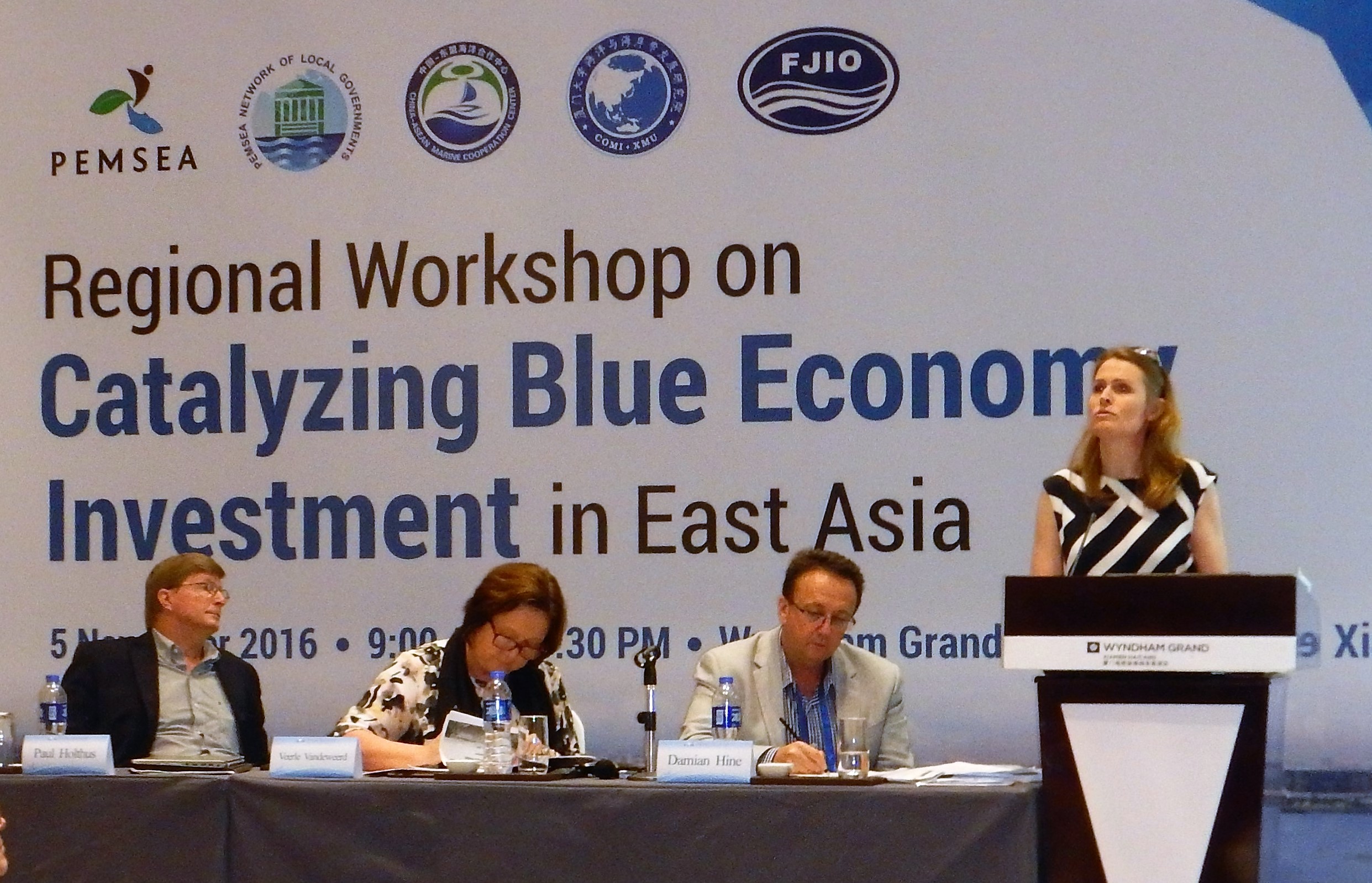
The final panel of the afternoon included emerging platforms for blue economy development and investment. Dr. Charles Colgan from the Center for the Blue Economy shared about the Center’s work defining and measuring what exactly constitutes the “blue economy” and how it can help support better understanding of the blue economy for investors. Lawrence Ang, Director for Asia for SSG Advisors, described work in Sea Asia on electronic catch documentation and traceability to fight unsustainable fishing, and some of the investment opportunities that these emerging systems may give rise to. Finally, Ryan Whisnant, Head of Professional for PEMSEA, shared the Seas of East Asia Knowledge Bank, a platform developed to support knowledge sharing and facilitate development and matching of blue economy investments in the region.
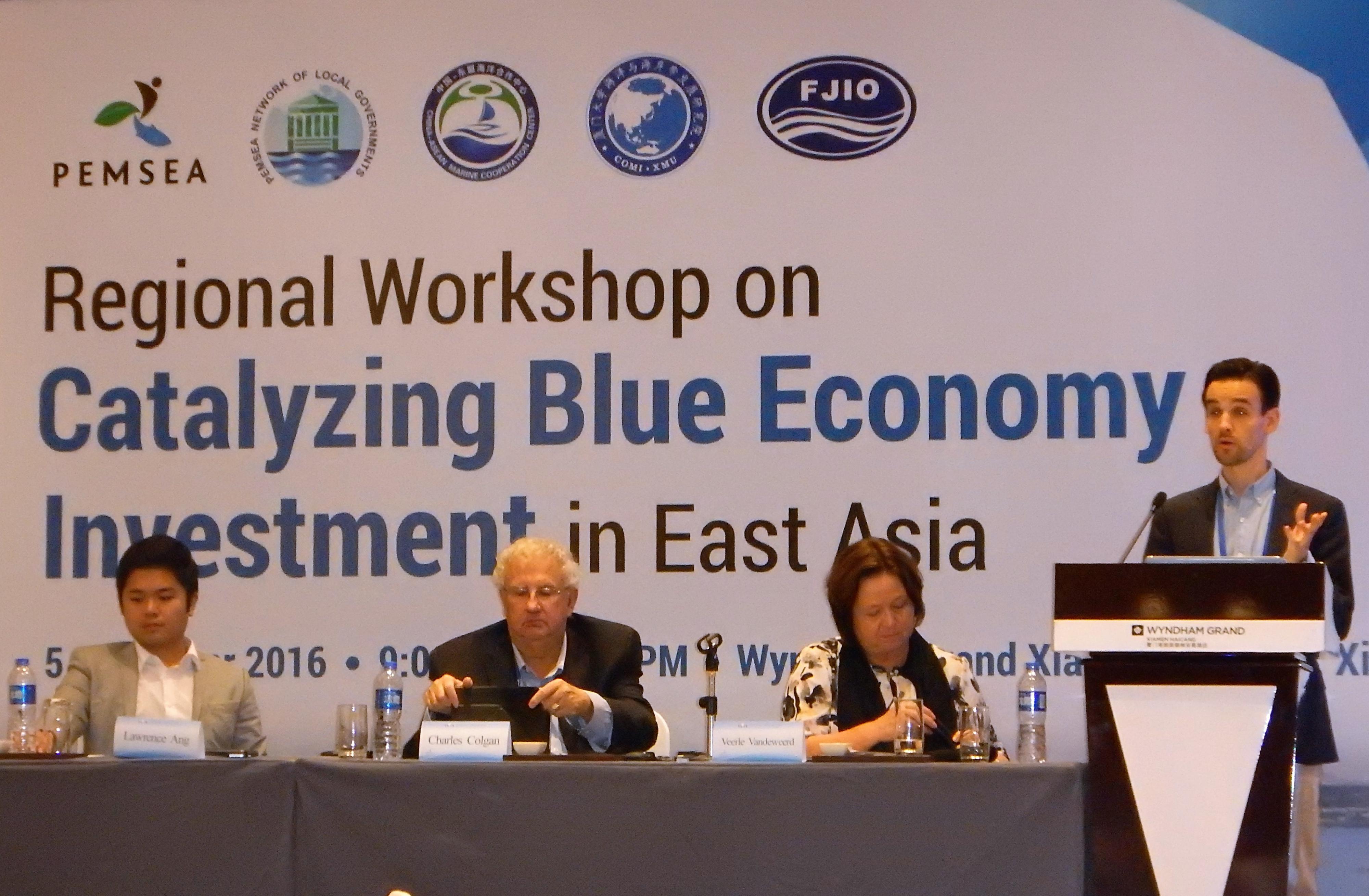
Overall, the workshop highlighted the growing ecosystem of platforms and resources being developed to address barriers to investment in the blue economy. Participants affirmed the need for some type of “pre-investment facility” to help develop a better pipeline of investment-ready opportunities, with a standardized and replicable approach. They agreed that investors are not yet fully comfortable with oceans, but steps can be taken to help address the perceived risks. Ultimately, participants felt there is encouraging precedent for a regional investment facility for oceans and they shared a positive outlook for working together to find opportunities for mutual support to advance investments in our “one big ocean”.

